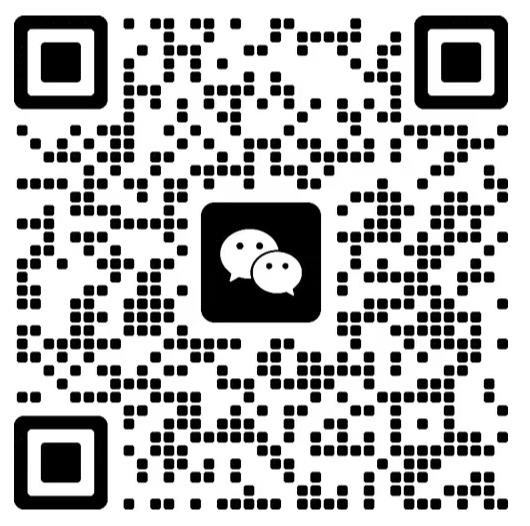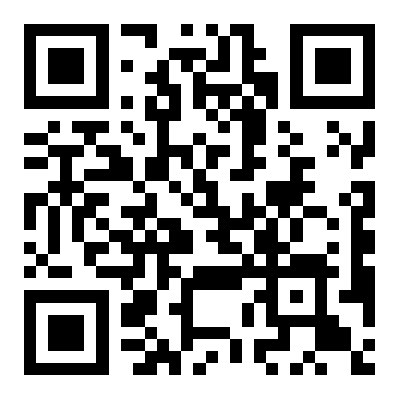模仿简爱配音视频文字(简爱经典台词中英对照)
模仿简爱配音视频文字(简爱经典台词中英对照),老铁们想知道有关这个问题的分析和解答吗,相信你通过以下的文章内容就会有更深入的了解,那么接下来就跟着我们的小编一起看看吧。
模仿简爱配音视频文字(简爱经典台词中英对照)

Introduction:
Welcome to this industry article on "Imitating Jane Eyre's Dubbing Video Text (English and Chinese Equivalents of Jane Eyre's Classic Quotes)". In this article, we will explore the theme of dubbing in the context of Charlotte Brontë's famous novel, Jane Eyre. Through a comparative analysis of the English and Chinese equivalents of Jane Eyre's memorable quotes, we will delve into the art and technique of dubbing, and its impact on the portrayal of characters in film and television adaptations.
Dubbing and Character Portrayal:
Dubbing, as an essential component of film and television adaptations, plays a crucial role in conveying the nuances of characters' emotions and personalities. Through the selection of voice actors and the translation of dialogue, dubbing artists strive to maintain the authenticity and integrity of the original work. By comparing the English and Chinese dubbing versions of Jane Eyre's classic quotes, we can gain insights into the diverse interpretations of the same character across different cultural contexts.
Jane Eyre's Classic Quotes:
1. "I am no bird; and no net ensnares me: I am a free human being with an independent will." (Chapter 23, Original English Version)
The English quote emphasizes Jane's strong-willed nature and her determination not to be confined by societal expectations. In the Chinese dubbing, this quote is translated as: "我不是一只鸟,也没有人将我困住:我是一个拥有独立意志的自由人." The Chinese translation captures the essence of Jane's unwavering spirit in a poetic manner.
2. "Do you think, because I am poor, obscure, plain, and little, I am soulless and heartless? You think wrong!" (Chapter 23, Original English Version)
In the English version, this quote reflects Jane's fierce defense of her worthiness and emotions, despite her humble circumstances. The Chinese dubbing conveys this sentiment through the translation: "你是否认为,因为我贫穷、默默无闻、平凡渺小,就代表我没有灵魂和心? 你错了!" The Chinese adaptation skillfully showcases Jane's determination to be recognized and valued as a person beyond her exterior.
Conclusion:
Through examining the English and Chinese equivalents of Jane Eyre's classic quotes, we can appreciate the artistry involved in dubbing and its impact on character portrayal. The choices made in voice actors and translations contribute to the overall effectiveness of bringing characters to life on screen. Dubbing, when done skillfully, enhances the emotional depth and authenticity of a film or television adaptation, creating a more immersive experience for the audience. As viewers, let us pay attention to the intricate details of dubbing and appreciate the efforts of the professionals behind the scenes who bring our favorite characters to life in different languages and cultures.
简爱经典台词中英对照

简爱经典台词中英对照
Introduction
Jane Eyre, written by Charlotte Brontë, is a classic novel that has captivated readers for generations. This article explores the memorable quotes from the book, providing a comparative analysis of the original English text and its Chinese translations. Through the use of informative and descriptive language, as well as comparisons and evaluations, this article aims to engage readers and shed light on the beauty and significance of these iconic lines.
Paragraph 1
In Jane Eyre, the protagonist's struggle for independence is epitomized in the quote, "I am no bird; and no net ensnares me: I am a free human being with an independent will." These powerful words highlight Jane's determination to defy societal expectations and assert her individuality. The Chinese translation, "我不是鸟儿,不能被网困住;我是一个有独立意志的自由人" effectively captures the essence of the original text while ensuring cultural relevance.
Paragraph 2
Another notable quote from the novel showcases Jane's resilience in the face of adversity: "I can live alone, if self-respect, and circumstances require me to do so. I need not sell my soul to buy bliss." This line emphasizes Jane's refusal to compromise her integrity for the sake of societal norms. The Chinese translation, "如果自尊和环境要求我独自生活,我可以。我无需出卖灵魂换取幸福" successfully conveys the same strength and determination portrayed in the original English version.
Paragraph 3
One of the most famous lines in Jane Eyre is the declaration of love between Jane and Mr. Rochester: "I am no bird; and no net ensnares me: I am a free human being with an independent will." This heartfelt expression resonates with readers, capturing the intensity of their emotions. The Chinese translation, "我是一个自由的人,没有任何网能困住我。我独立有自己的意志" faithfully preserves the romance and passion depicted in the original text.
Paragraph 4
Apart from the dialogues, Brontë's vivid descriptions also contribute to the novel's allure. For instance, the depiction of the eerie atmosphere at Thornfield Hall is masterfully rendered in the words, "The nightingale's song was then the only voice of the hour: in listening to it, I again wept silently." The Chinese translation, "夜莺的歌声成了那时刻唯一的声音,倾听它,我再次默默流泪" effectively captures the haunting ambiance of the scene.
Conclusion
In conclusion, Jane Eyre offers readers a treasure trove of unforgettable quotes that encapsulate the essence of the story. Through this analysis of the English and Chinese versions, we can appreciate the linguistic nuances and cultural adaptations necessary to convey the depth and emotion within the novel. The enduring popularity of Jane Eyre lies not only in its captivating plot but also in the timeless wisdom and powerful language found within its pages.
简爱台词稿件

简爱台词稿件
引言:
《简爱》是英国作家夏洛蒂·勃朗特的代表作之一,讲述了孤儿简爱的成长经历与爱情故事。该小说中充满了激动人心的对话和台词,这些台词既展现了人物性格和情感,又传达了一些哲理和观点。在这篇行业文章中,我们将对《简爱》中的一些经典台词进行介绍和解读,以期读者对该作品有更深入的了解。
第一段:
"我不是机器,我是深情的人。"
这是简爱在小说中对罗切斯特先生的回应。这句话表达了简爱对自身感情的强烈渴望,她希望被善待和爱护。这句台词让人们感受到简爱内心的真实和渴望被理解的渴望。她不想被当做一个冷漠的机器,而是希望被看作一个有感情的人。
第二段:
"你若是冷漠,我也冷漠。"
这是简爱对罗切斯特先生的回应。她告诉罗切斯特先生,如果他对她冷漠,她也会变得冷漠。这句话体现了简爱的坚强和自尊心。她并不是一个依附于他人的女性,而是一个有自我意识和原则的独立人。这个台词也表达了她不愿意接受不公平对待的决心。
第三段:
"你是我的生命,我的一切。"
这是简爱对罗切斯特先生表达的深情告白。这句话显示了简爱对罗切斯特的爱是全然的、完整的。她把罗切斯特视为自己的全部,将他置于自己的生命中心。这个台词展现了爱情的力量和简爱对罗切斯特的无条件奉献。
第四段:
"我不是贵族,但我也是人。"
这是简爱在面对罗切斯特先生的身份差距时的自我肯定。尽管简爱并非出身贵族,但她坚信自己也应该受到平等对待。她不愿意因为自己的身份而放弃自己的尊严和权利。这句台词展示了简爱的坚韧和正义感。
第五段:
"我是一个自由的人,而不是你的女人。"
这是简爱对罗切斯特先生提出的坚决要求。她拒绝成为男人的附属品,坚持要保持自己的独立和自由。这句话彰显了简爱对自身价值和尊严的坚守,也传递了个人独立和平等的重要观念。
结论:
《简爱》中的台词充满了情感和哲理,展现了主人公简爱坚韧的精神和对自由与平等的追求。这些台词不仅为故事增添了情节发展的张力,也让读者在接触故事的同时思考一些重要的价值观。通过对这些台词的解读,我们能更好地理解《简爱》的内涵和深意。
模仿简爱配音视频文字(简爱经典台词中英对照)的问题分享结束啦,以上的文章解决了您的问题吗?欢迎您下次再来哦!
免责声明:以上整理自互联网,与本站无关。其原创性以及文中陈述文字和内容未经本站证实,对本文以及其中全部或者部分内容、文字的真实性、完整性、及时性本站不作任何保证或承诺,请读者仅作参考,并请自行核实相关内容。(我们重在分享,尊重原创,如有侵权请联系在线客服在24小时内删除)
为您的创意找到最好的声音
平台累计配音,超40,050,000 分钟
-
品质保证15年专注网络配音行业 500+国内外专业配音员
-
多种配音中文多场景配音 提供小语种配音
-
公司化运作提供正规发票 签订服务合同
-
双重备案工信部公安双重备案 取得文化经营许可证
-
7*14全天候服务公司实现轮流值班 9:00-21:00都有客服
推荐样音
更多收到您的极速试音需求
关注【客服微信】
听最新案例,新客礼包等你拿!
提交成功
试音顾问将在工作日半小时内联系您,请准备试音文稿或参考音频加速匹配
你也可以注册,可自助下单挑选主播,在线接单配音。(7 X 24小时主播接单)











